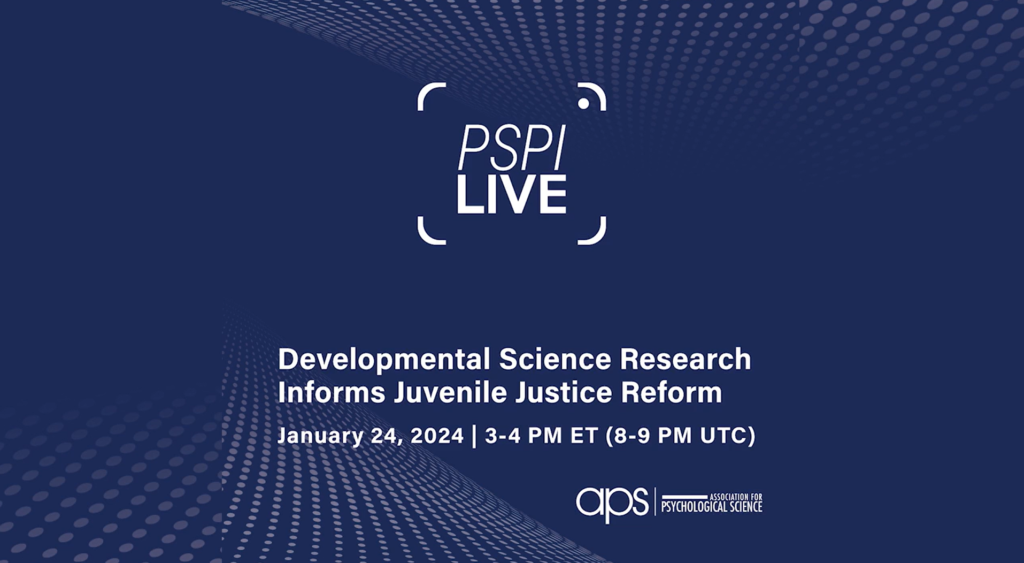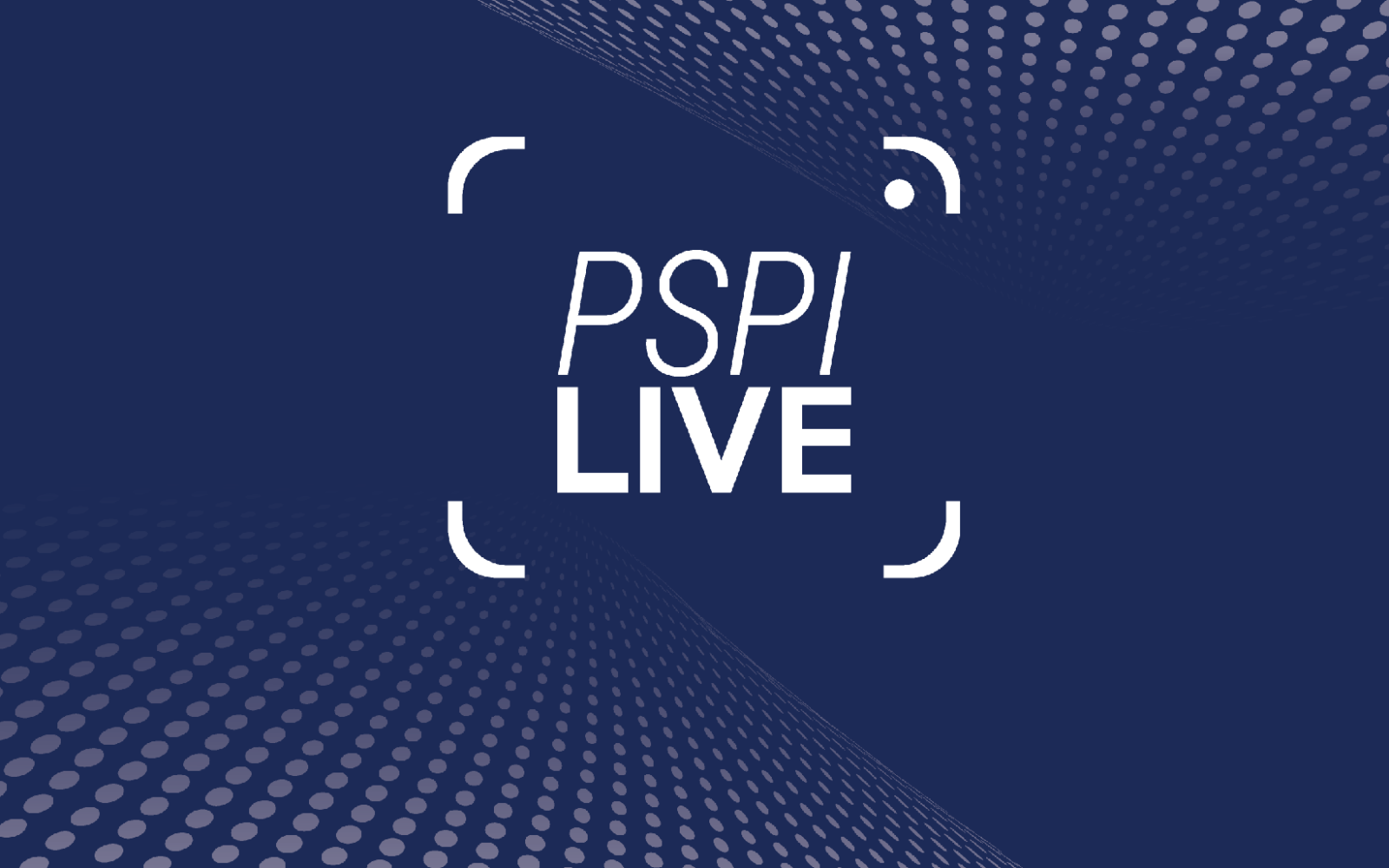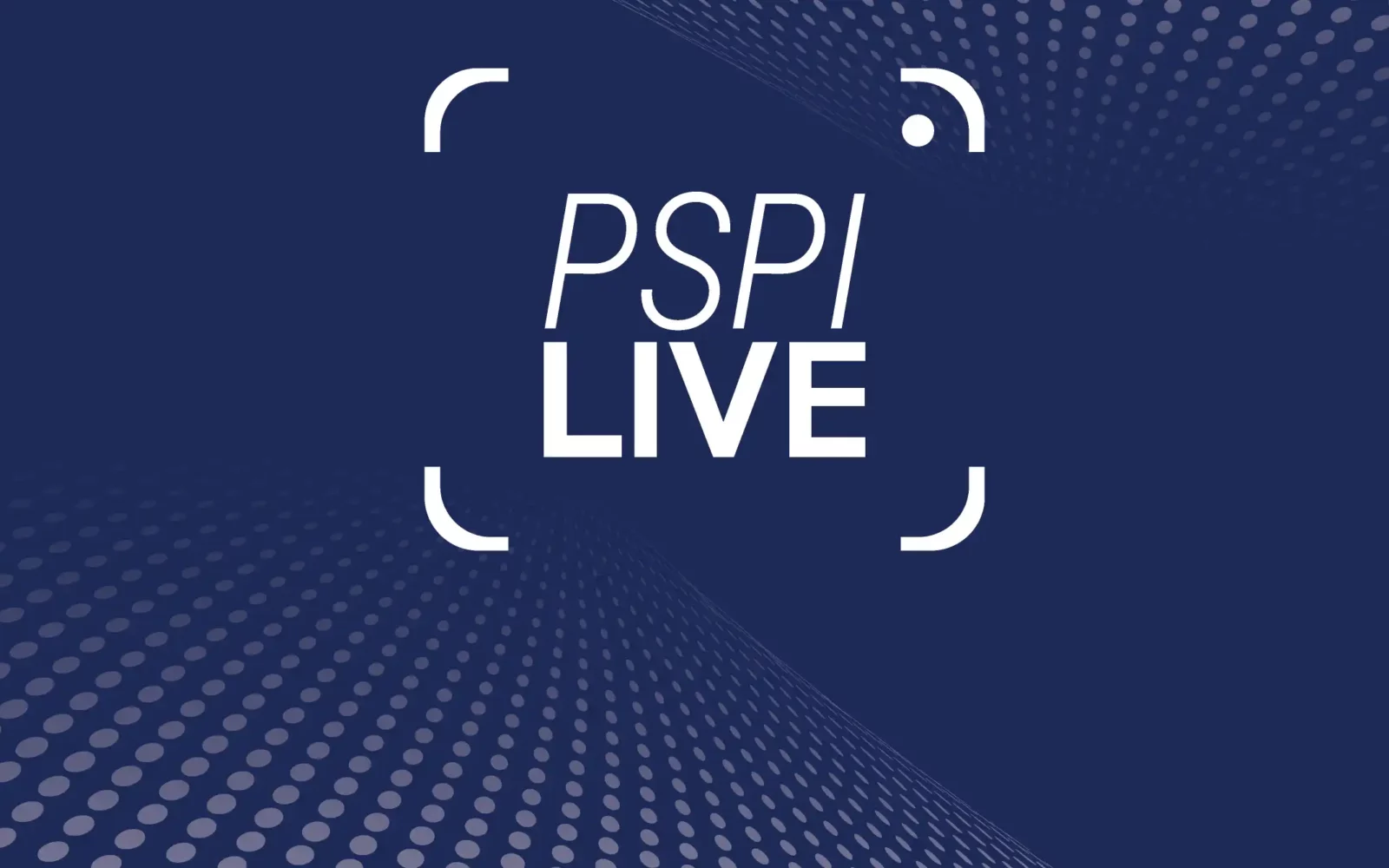PSPI Live: Developmental Science Research Informs Juvenile Justice Reform

PSPI Live is a series of 60-minute live events highlighting recent or upcoming papers published in the APS journal Psychological Science in the Public Interest (PSPI). Speakers include the authors, policymakers, or representatives of important stakeholder groups.
The field of juvenile justice in the United States has gone through significant changes over the past 20 years thanks to its collaboration with developmental science. PSPI Live brings together the authors of a forthcoming publication in Psychological Science in the Public Interest, “Adolescent Contact, Lasting Impact? Lessons Learned from Two Longitudinal Studies Spanning 20 Years of Developmental Science Research with Justice-System Involved Youths.”
See related news release: Detention Fails to Help Young Lawbreakers Avoid Further Offenses, Report Shows
A recording of the symposium is available below for registrants and APS members.
The full webinar is available to APS members and registered attendees.
Related PSPI Live Content
-

PSPI Live: Understanding the Stigma Associated With Substance Dependence
In an October 25 APS PSPI Live webinar, experts in the field discussed substance abuse and dependence from a nuanced perspective that goes beyond common misconceptions. A recording of the symposium is now available for registrants and APS members. Visit Page
-

What Makes Educational Interventions Stick? Teaching the Right Skills in the Right Environments
The latest PSPI Live explored a review of the factors that contribute to the persistence and fade-out of educational interventions. Visit Page
-

“A Staggering Public-Health Problem”: Psychological Interventions for the Treatment of Chronic Pain
This PSPI Live is focused on how psychological interventions can be part of a comprehensive plan to manage chronic pain. Visit Page





APS regularly opens certain online articles for discussion on our website. Effective February 2021, you must be a logged-in APS member to post comments. By posting a comment, you agree to our Community Guidelines and the display of your profile information, including your name and affiliation. Any opinions, findings, conclusions, or recommendations present in article comments are those of the writers and do not necessarily reflect the views of APS or the article’s author. For more information, please see our Community Guidelines.
Please login with your APS account to comment.